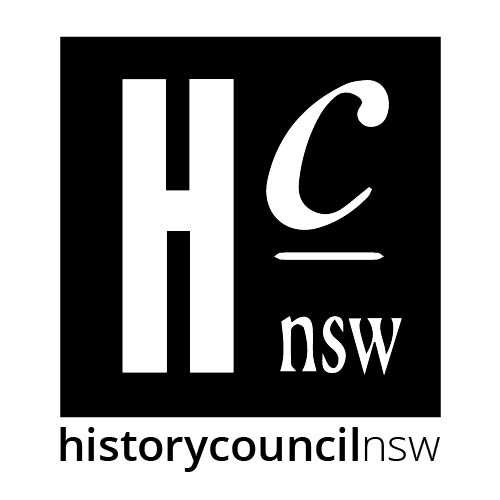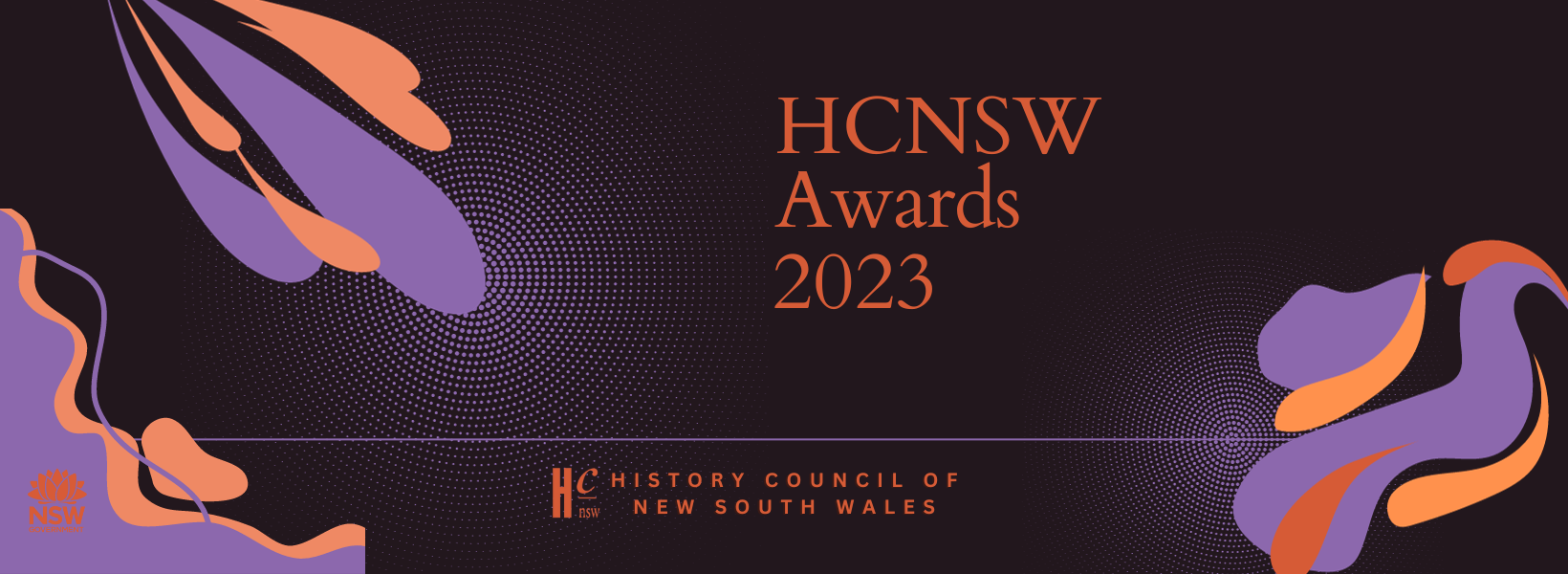
Annual History Awards Presentation
5 December, 2023, 5:30-8:00PM
The Auditorium, Lower Ground, Anzac Memorial, Hyde Park South, Sydney
Bookings now open! Register via the link below.
About the HCNSW’s Annual Awards & Prizes
The HCNSW Annual History Awards support and acknowledge contributions towards historical practice and theory and celebrate history in all its diverse forms.
We offer a number of prestigious annual awards and prizes across different fields of historical practice, totalling $5,500 in prize money. Students, early career researchers, continuing historians, and those that produce digital histories are all catered for. Honorable Mention citations will also awarded, where appropriate.
We offer a number of prestigious annual awards and prizes totalling $5,500 in prize money, with Honorable Mention citations also awarded where appropriate. The Awards Judging Panel consists of leading academics from NSW universities, representing our Cultural Partners, as well as a delegate of the Professional Historians Association (NSW & ACT).
Winners will be announced and prize presentations made on 5 December 2023. The HCNSW reserves the right to withdraw a prize if there are no eligible entrants or no entries of a sufficient standard to receive that prize.
Further details such as the criteria for each award and prize can be found below.

2022 Addi Road Award for Multicultural History, awarded to the team of researchers from multiple universities, that curated the online exhibition, Ayahs & Amahs: Transcolonial Journeys. Photo credit: Tim Harris, TWH Photography.
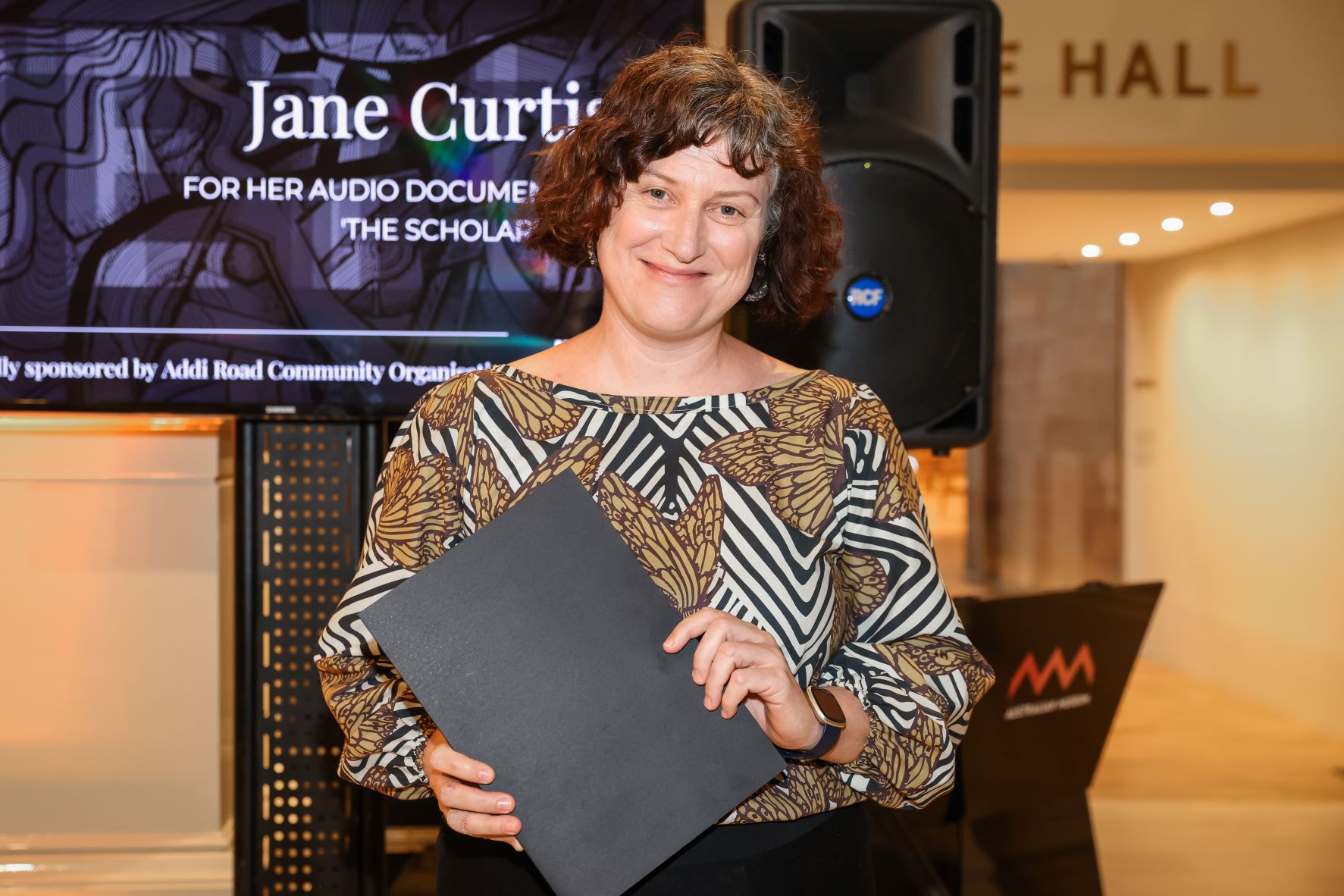
2021 Addi Road Community Organisation prize for Multicultural History, awarded to Jane Curtis. Photo Credit: Jacqui Manning.
Click on the relevant tabs below to navigate to information about each award and prize, including criteria.
- Addi Road Award for Multicultural History
- First Nations History Award
- Jill Roe Regional History Award
- The Macquarie-PHA Applied History Award
- Max Kelly Award
The Addi Road Award for Multicultural History (supported by the Addison Road Community Organisation was awarded for the first time in 2019.
The purpose of the Award is to encourage new and emerging historians to discover, analyse and explore multicultural histories and the history of multiculturalism in Australia, helping to increase academic and public engagement in a topic that has ongoing relevance to Australian history and society today.
In 2023, the winner receives a citation and a prize of $1,000. The winning entry (essay or multimedia) makes an original argument using primary historical sources and demonstrate the capacity to develop complex arguments linking the past to contemporary, multicultural issues that have, or are currently impacting on the Australian community.
Co-authored or collaborative works are eligible for submission.
For further information and criteria click here. (Apply via the button above.)
Opening date: September 2023
Closing date: 31 October 2023
Submissions will be processed online.
Previous winners –
- 2022 Addi Road Award for Multicultural History was awarded to the team of researchers that curated the online exhibition, Ayahs & Amahs: Transcolonial Journeys.
- 2021 Addi Road Award for Multicultural History was awarded to Jane Curtis for her entry: ‘The Scholars Hut’.
- 2020 Addison Road Community Centre Organisation Award for Multicultural History was awarded to Dr Alexandra Dellios for her entry: ‘Unsettling Post-War Settlement: Remembering Unassimilable Families in the Space of the Migrant Camp’.
- 2019 Addison Road Community Centre Organisation Award for Multicultural History was awarded to Charlotte Ward for her entry: ‘Captain Cook: A Catalyst for Contestation’.
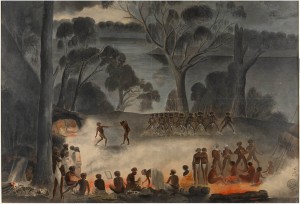
Corroboree on the Murray River, 1858, image by Gerard Krefft, courtesy SLNSW
The History Council of NSW’s First Nations History Award, originally named the Aboriginal History Prize until 2020, was first awarded in 2016. Its purpose is to encourage students and other beginning historians (up to post-doctoral career) in the writing of Australian Aboriginal and Torres Strait Islander history from original sources. Indigenous Australians are strongly encouraged to submit entries.
The winner will receive a citation and a prize of $2,500. The winning entry will demonstrate excellence in addressing its subject, proficiency in the use of original materials and clarity of exposition.
Opening date: September 2023
Closing date: 24 October 2023
Submissions will be processed online.
For further information and award criteria, click here. (Apply via the button above.)
Previous Winners –
- 2021 First Nations History Award was awarded to Jessica Urwin for her entry: ‘Take it back to Sydney’.
- 2020 Aboriginal History Prize was awarded to Sally Bourkarim-Ghattas for her entry: ‘Black Power, Aboriginal Genocide, and the Politics of Identity’
- 2019 Aboriginal History Prize was awarded to Deirdre O’Connell for her entry: ‘American Boomerang: Searching Aboriginal Sydney, 1928’
- 2018 Aboriginal History Prize was awarded to Meg Foster for her essay: ‘The Forgotten War of 1900: Jimmy Governor & the Aboriginal People of Wollar.’
- 2017 Aboriginal History Prize was awarded to Ruby Arrowsmith-Todd for her essay: ‘Spectacle, Spectators and Critics: Mid-century Indigenous cinema-goers and Shell’s travelling films’.
- 2016 Aboriginal History Prize was awarded to Rachael Simons for her essay: ‘“We Will Protect Ourselves”: William Ferguson’s Critique of the Policy of Aboriginal Protection in NSW, 1937-1938’.
The Jill Roe Regional History Award is supported by the HCNSW’s Jill Roe bequest funds.
In 2022, the History Council of NSW introduced a new Regional History Award. Named in honour of Professor Jill Roe (1940-2017), an outstanding and pioneering Australian historian, the purpose of the Award is to encourage historians at any stage of their careers to discover, analyse, and explore rural and regional Australian history, helping to increase academic and public engagement in a topic that has ongoing relevance to Australian history and society today.
In 2023, the winner will receive a citation and a prize of $500.
The winning entry will make an original and compelling argument using primary historical sources and demonstrate the capacity to develop complex arguments linking the past to contemporary, rural and regional issues that have, or are currently having an impact on the Australian community.
Individuals and groups are eligible to apply. The award is open to historians at all stages of their career, including those inside and outside of academic institutions; undergraduate, diploma, masters and doctoral level students; as well as professional, local, community and family historians. Candidates must have lived and/or created their work in New South Wales or the Australian Capital Territory substantially undertaken in the 12 month period from 1 July 2022 – 30 June 2023.
For further information and criteria, click here. (Apply via the button above)
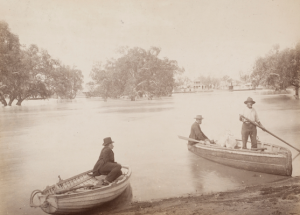
Darling and lower Murray during the flood of 1886, Image courtesy State Library of NSW
The Macquarie-PHA Applied History Award is jointly sponsored by the Macquarie University Centre for Applied History and the Professional Historians Association (NSW & ACT).
The purpose of the Award is to encourage historians to produce a creative work of applied history drawing on their research. It aims to promote the value of public history and the pursuit of history as a rewarding professional career.
Individuals and groups are eligible to apply. The award is open to historians at all stages of their career, including those inside and outside of academic institutions; undergraduate, diploma, masters and doctoral level students; as well as professional, local, community and family historians. Candidates must have lived and/or created their work in New South Wales or the Australian Capital Territory over the 12 months preceding the deadline for submissions.
The winner receives a citation and a prize of $1,000. The winning entry will demonstrate excellence in writing or other media, and the ability to use original source materials, or demonstrated originality of interpreting the past in a contextual way. This work should engage with the field and practice of professional, public and applied history, using the past to inform contemporary concerns, issues and topics in creative ways.
Opening date: September 2023
Closing date: 31 October 2023
Submissions will be processed online.
For further information and criteria, click here. (Apply via the button above).
Previous Winners –
- 2022 The Macquarie-PHA Applied History Award was awarded to Alison Wishart for the online and onsite project Parks for the People! Jack Mundey and the Eastlakes Green Ban.
- 2021The Macquarie-PHA Applied History Award was awarded to Tweed Regional Museum for their online exhibition and collection project ‘Small Town Queer’.
- 2020 The Macquarie-PHA Applied History Award was awarded to Martha Ansara & Robynne Murphy for their documentary on ‘Women of Steel’.
For 2019, the subject for the Centre of Applied History Award was for works in applied and public history that have the potential to inform good public policy. Co-authored or collaborative works were eligible for submission.
- 2019 Macquarie University Centre for Applied History Award was awarded to Kieran Bonin for his entry: ‘Rugby in Union?’
(Please note that the above link leads through to an abstract containing a link to the Podcast that formed part of the entry)
Previous Winners of the Applied History Award (previously known as the Deen De Bortoli Award for Applied History) are:
- 2018 Deen De Bortoli Award for Applied History was awarded to Dr Peter Prince for his entry: ‘Australia’s most inhumane mass deportation abuse? Robtelmes v Brenan and explusion of the Alien Islanders.’
- 2017 Deen De Bortoli Award for Applied History was awarded to Jodie Stewart for her entry: ‘Emotions, Stories, Pasts: Feeling the Settler and Aboriginal Past on the Bundian Way’.
- 2016 Deen De Bortoli Award for Applied History was awarded to Dr Hannah Forsyth for her entry: ‘Dreaming of Higher Education’.
- 2015 Deen De Bortoli Award for Applied History was awarded to Meg Foster for her entry: ‘Online and Plugged In?: Public History and Historians in the Digital Age’.
The Max Kelly Award was first awarded by the History Council of NSW in 1997 to honour the memory of the first elected President of the History Council of NSW, Associate Professor Maxwell John Kelly (1935-1996). Its purpose is to encourage students and other beginning historians (up to a postdoctoral career) in the writing of Australian history from original materials. The winning entry will demonstrate excellence in addressing its subject, proficiency in the use of original materials and clarity of exposition.
The winner will receive a prize of $500 at an Awards Ceremony in October/November. Winners will also be promoted via social media and online and in the HCNSW’s newsletter.
The History Council of NSW is grateful to Mr Geoffrey Jones for his continuing support and generous donation of the prize money for the award.
Opening date: September 2023
Closing date: 31 October 2023
Submissions will be processed online.
For further information and criteria, click here. (Apply via the button above)
Previous Winners –
- 2022 Max Kelly Award was awarded to Dr Juanita Kwok for her article ‘The Lambing Flat Riots and the Chinese Quest for Compensation’.
- 2021 Not awarded.
- 2020 Max Kelly Award was awarded to Elizabeth Heffernan for her entry: ‘‘Oh for places – green oases – ’: Australian Soldiers and the Environments of the First World War’.
- 2019 Max Kelly Award was awarded to Robert Mason for his entry: ‘The (First) “Battle of the Wasser”, 2 April 1915: A Footnote in History?’
- 2018 Max Kelly Medal was awarded to Jessica Urwin for her entry: ‘Physicists in the Fields of Thunder: Ernest Titterton and Britian’s Empire in the 1950’s Australia.’
- 2017 Max Kelly Medal was awarded to Marian Lorrison for her entry ‘Reduced to the Lowest Pitch of Want and Starvation’
- 2016 Max Kelly Medal was awarded to Daniel McKay for his entry: ‘Loyal Children: The Australian Factor in the Birth of the Imperial Federation Movement’.
- 2015 Max Kelly Medal was awarded to Rohan Howitt for his entry: “The Making of a Maori Working Class: Trans-Tasman Migration and Colonial Development in New South Wales, 1806-40″.
- 2014 Max Kelly Medal was awarded to Sydney-Clare Abba for her entry: “In History’s Page: A Comparative Historiography of the ‘Stolen Generations’ and the ‘Forgotten Australians’ Or A Study on the Need for Further Study”.
- 2013 Max Kelly Medal was awarded to Harriet Mercer for her entry ”The Responsibility that rests on our shoulders’: Ideas of Race, Gender and Citizenship in Interwar Australian Feminist Activism’.
- 2012 Max Kelly Medal was awarded to Haidee Ireland for her entry: ‘The case of Agnes J.: Tracing Aboriginal presence in Sydney through criminal Justice records’.
- 2011 Max Kelly Medal was awarded to Rose Cullen for her entry: ‘Empire, Indian indentured labour and the colony: the origins of the debate over ‘coolie’ labour 1836-37’.
- 2010 Max Kelly Medal was awarded to Agnieszka Sobocinska for her entry: ‘The language of scars’: POWs’ bodies and the overturning of the colonial order’.
- 2009 Max Kelly Medal was awarded to Isobelle Barrett Meyering for her entry: ‘Abolitionism, settler violence and the case against corporal punishment: A reassessment of Sir William Molesworth’s contribution to the transportation debate’.
- 2008 Max Kelly Medal was awarded to Grant Mansfield for his entry: ‘The Costs of War: patriotism and price-fixing during the opening months of the Great War in Australia’.
- 2007 Max Kelly Medal was awarded to Timothy David Castle for his entry: ‘Watching Them Hang: Capital Punishment and Public Support in Colonial New South Wales, 1826-1836′.
If you have any questions please contact us and subscribe to our e-newsletter to receive announcements.
Annual History Citation
Each year the History Council of NSW, via nominations from General Council members, awards the Annual History Citation to an eminent historian to honour a lifetime of service to history.
The Citation recognises individuals for outstanding research and scholarship and acknowledges their broader contribution through teaching, leadership, mentoring and community involvement.
For further details, including a list of past winners, please refer to the Annual History Citation page.
Create NSW Funding & Support
The HCNSW is supported by an annual grant from Create NSW through the Arts & Cultural Development Program which enables it to manage the Awards & Prizes program, among other History Professional Development programs.
Information about funding and support available about this program can be accessed here.
Contact Us
